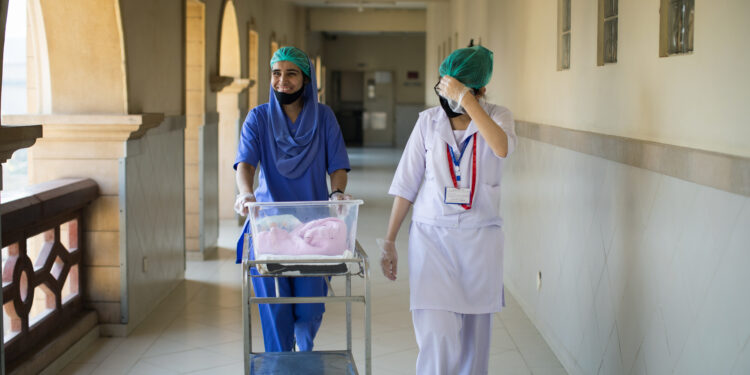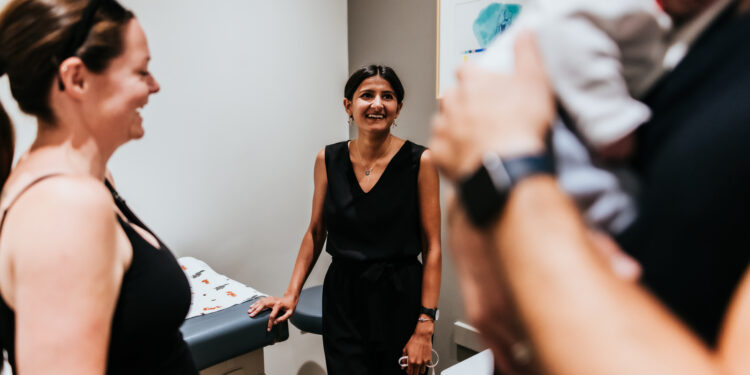Heritage and Culture in Childbearing

Background
According to the International Organisation of Migration (1), Today, the number of people living outside their countries of origin has more than doubled in the last 35 years. This significant movement of people occurs not only from developing to developed countries, but also from one developed country to another and as well as between developing countries. As a result, the demographic composition of populations in many countries has been changing steadily leading to marked changes in the cultural landscape in many communities. Within this changing cultural and social environment, childbirth remains a significant health, psychosocial and emotional event, not only for the woman, but also for her family and perhaps the whole community. The care given by a midwife should take into consideration the individual woman’s cultural and social needs in this environment which might be different from the midwife’s place of origin. The World Health Report 2005 states that ‘There is a value in the rituals surrounding birth and in keeping these as a central feature of family life’. This calls on the midwife to be constantly aware of the possible heterogeneity of the population within which she is providing care and to continually apply that awareness for optimal care.
Attitudes and activities that are associated with birth, within the family and community, are usually aimed at providing help and support for the mother and baby, as well as celebrating the event. Midwives may be expected or invited to take part in the activities around birth, or they may leave the family in privacy. Part of appropriate maternity care is that the midwife should be aware of the woman’s and family’s culture, what might be expected of the midwife and how best to enable the family to carry out their cultural activities. Occasionally, the midwife may become aware of a cultural practice that appears to be harmful to the mother or baby. In such circumstances, the midwife should educate and counsel the family appropriately.
Position
ICM believes that midwives, and the women and families they care for, deserve respect and the freedom to participate fully and knowledgeably in cultural, traditional decisions and belief systems that affect their lives.
ICM acknowledges that in every culture there may exist harmful traditions imposed on young girls and women, and is therefore committed to working in partnership with women to change these harmful practices.
ICM promotes the full participation of people of all cultures in the development of health policies, and the planning and implementation of health services during childbearing that are safe, acceptable, and available and used. This participation is based on respect for human dignity and a partnership model of professional midwifery practice.
In recognition of the variety of cultural traditions and practices surrounding pregnancy and birth, the midwife will:
- In partnership with women and childbearing families, provide leadership in establishing and maintaining maternity services that are culturally sensitive, safe and free from discrimination
- be knowledgeable about the culture and traditions of the families they work with and respect those practices that will not cause harm to women and childbearing families
- in instances where such practices can cause harm: work with the community to eliminate the harmful practices
Recommendations
Member associations are encouraged to work with midwives, women, policy makers and the community to implement culturally safe health services, using this resolution as a basis for action.
Related ICM Documents
Other Relevant Documents
- WHO. World Health Report 2005. Make every mother and child count. Geneva, Switzerland. (2005)
- United Nations Human Rights Study Series #10: Protection of the Heritage of Indigenous People (1997)
- Demography and migration: An outlook for the 21st Century. By Reiner Munz. Migration Policy Institute. Policy Brief. No. 4 September 2013
Adopted at Brisbane International Council meeting, 2005
Revised at Toronto International Council meeting, 2017
Due for next review 2023
(1) IOM. Migration and demography. http://www.google.nl/url?url=http://www.rcmvs.org/documentos/IOM_EMM/v2/V2S02_CM.pdf&rct=j&frm=1&q=&esrc=s&sa=U& ed=0ahUKEwjhk6qdrdXQAhXHDxoKHe8sDbcQFggsMAI&sig2=riEiKMGgw4Op1Gf0yP9xFA&usg=AFQjCNH8ncXPTa6KXSX9TzMFPV3Unveaw
PS2011_009 V2017


